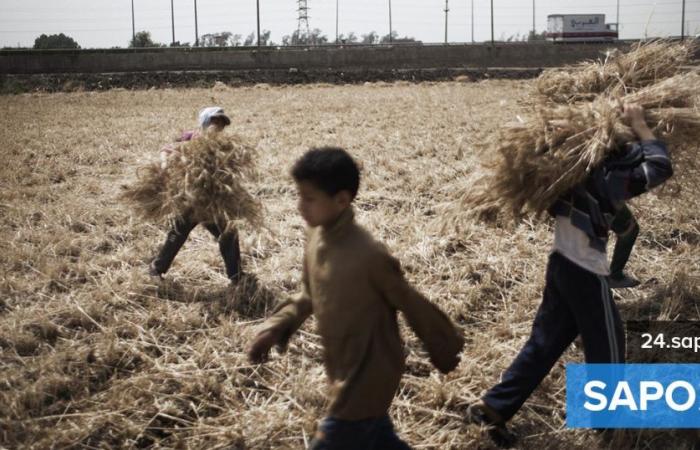This Tuesday, the European Parliament approved a law that allows the European Union to prohibit the sale, import and export of products manufactured using forced labor.
Goods under suspicion may be investigated by the authorities of the 27 EU countries and also by the European Commission, especially when it comes to third countries, from manufacturers to supply chains. If it is proven that a product was manufactured using forced labor, it will no longer be possible to sell it in the 27 member states and all shipments will be seized at EU borders.
Suspicions of forced labor must be based on concrete and verifiable information, and it is enough for the report, made by any person or organization, to meet these requirements for the investigation to move forward. Various risk factors and criteria are considered, including the prevalence of state-imposed forced labor in certain economic sectors and geographic areas.
Once the complaint is proven, the consequence is the withdrawal from the market of all goods produced using forced labor and the prohibition of their sale. Companies that violate this prohibition are subject to fines.
The seized material may be donated, recycled or simply destroyed. If economic operators provide the competent authorities with evidence that they have eliminated forced labor from their activities or from the supply chain, the products in question may be allowed to return to the EU single market.
According to the World Labor Organization (ILO), annual profits from forced labor exceed 220 billion euros, 37% more than the value indicated in the previous report, published ten years ago.
The ILO study points to a profit of more than 9 thousand euros per victim of forced labor, which in terms of value is most significant in Europe and Central Asia. And not everything is private companies, there are also States involved. European deputy Maria Manuel Leitão Marques (elected by the PS), rapporteur for the Internal Market and Consumer Protection Committee, recalls countries like Turkmenistan, which forces workers to harvest cotton – imported by some Portuguese companies, also according to the ILO.
“Today, around the world, 28 million people [1,3 milhões na Europa] trapped in the hands of human traffickers and states that force them to work for little or no pay. Europe cannot export its values while importing products made with forced labor. The fact that the European Union finally has a law to ban these products is one of the greatest achievements of this mandate and a victory for progressive forces,” he said.
Also for the rapporteur of the Committee on International Trade, Samira Rafaela (Renewing Europe, Netherlands), “this is a historic day. We adopted an innovative piece of legislation to combat forced labor around the world. This regulation promotes EU cooperation and at an international level, it transfers power from exploiters to consumers and workers, in addition to offering recourse to victims. Furthermore, it makes trade policies a greener and fairer future.”
The law was approved by 555 votes in favour, six votes against and 45 abstentions and the text will now have to be formally approved by the EU Council and published in the Official Journal. EU countries will have three years before the new rules begin to apply. “We need to give the Commission time, which does not have the resources for this. Within three years there will already be a new multi-annual financial framework, explains Maria Manuel Leitão Marques.
This is also the time to implement the database – “we will create a central database to identify areas and products that are most often considered to be manufactured by forced labor” – and to define criteria and guidelines for companies , who until then will be able to “review their supply chains, find out where their products come from, work with their suppliers to resolve the situation at source”.
Before opening a formal process there will always be a preliminary investigation, where companies will have the right to defend themselves.
By adopting this measure, the European Parliament is responding to citizens’ expectations regarding trade and investment relations, as expressed in the conclusions of the Conference on the Future of Europewhich brought together around 800 anonymous citizens from the 27 Member States to learn about their concerns in concrete matters and present solutions, one of the promises made by Ursula von der Leyen when she took office as president of the European Commission.






